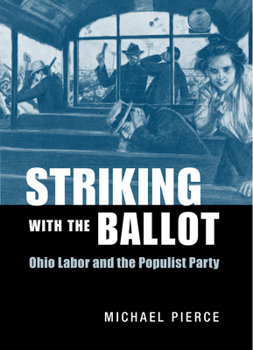Striking with the Ballot
Historians have typically thought of Populism as a radical agrarian movement. In this much-needed corrective, Pierce argues that, in Ohio, Populism was an urban, not rural, movement, and that industrial workers and trade unionists formed the core of the People's (or Populist) Party. Through case studies of Cleveland, Cincinnati, and Columbus, Pierce examines the efforts of Ohio unions--especially the United Mine Workers--to protect the rights of workers, curb the abuses of corporations, and reform the state's and nation's government through an alliance with the People's party. Striking with the Ballot focuses on the Crisis of the 1890s: when the Panic of 1893, the Pullman strike and boycott, the arrest of Debs, Coxey's march, and the failure of the nationwide coal strike threw the country into disarray. Pierce demonstrates that trade unionists in Ohio, and throughout the Industrial Midwest, responded by mobilizing politically under the banner of the People's Party. Support for the People's Party was so strong among the nation's trade unionists that Ohio's leading Populist, John McBride, won the presidency of the American Federation of Labor in 1894. Ohio labor's reform agenda survived the subsequent collapse of the People's Party and informed labor's political activity through the Progressive era. Pierce offers a provocative new narrative for those interested in labor history, Populism, Progressivism, and Ohio history.





